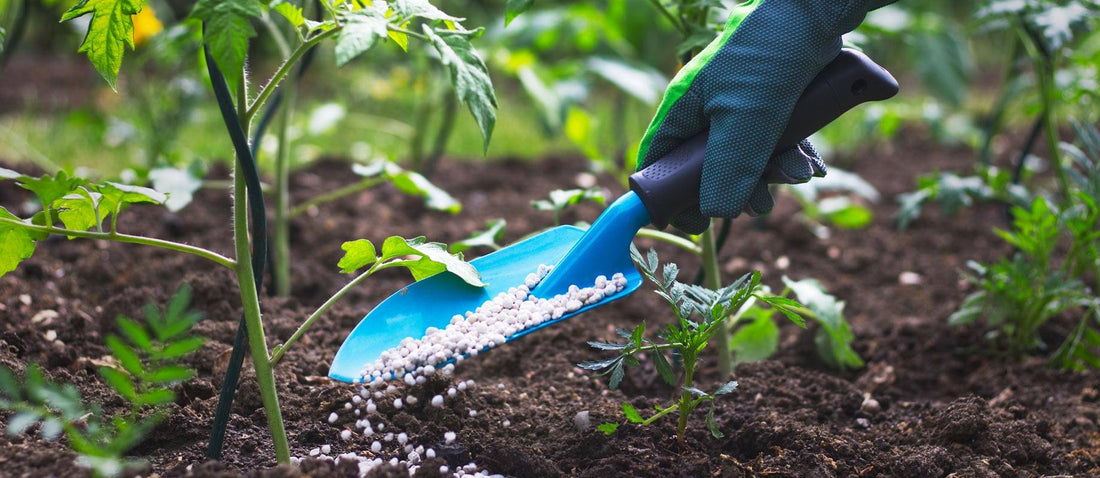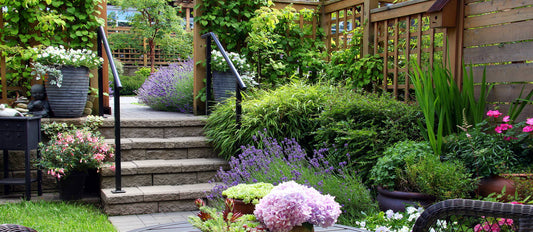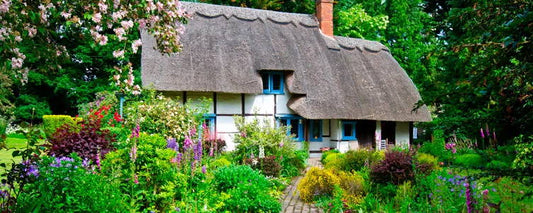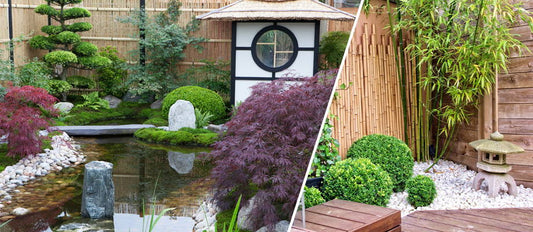If you want your garden plants and trees to grow strong and thrive, it is important to fertilise them regularly. Not only will fertilising your plants and flowers help them grow more strongly and bloom more profusely and for a longer period, it will also make them less susceptible to diseases and pests — and who doesn't want that! Both plants in open ground and plants in flower pots or patio planters need to be given extra plant food on a regular basis to help them grow and flower to their full potential. But what types of plant food are available and how often do you need to fertilise your plants? Let us tell you in this blog!
When should I fertilise my garden?
In general, spring is the best time to fertilise your plants, trees and flowers. At this time of year, your plants are ready to start growing and flowering and could use a little extra help. The packaging of your plant will contain instructions about when it needs some plant food. For many plants, applying fertiliser twice during spring is sufficient, ideally leaving a couple of months between each application. However, plants such as roses can be fertilised more often. Want to know more about fertilising and caring for your favourite plant? Look it up in our blog! You'll find more information about how and when to fertilise your plants there.
After applying fertiliser, it is important to make sure that you give your plants plenty of water. This ensures that the nutrients from the fertiliser are evenly distributed throughout the soil and allows the roots of the plants to easily absorb the nutrients a little at a time. Our top tip is to fertilise your plants on a cloudy day when rain is forecast.
What is the difference between organic fertiliser and artificial fertiliser?
Organic fertiliser
Using organic fertiliser will make sure that your soil is healthy and full of nutrients, and that the plants planted in it will grow to be lush and beautiful, with healthy leaves and a long flowering period. Organic fertilisers include cow manure, compost, turf, garden soil and potting soil. These fertilisers are all made from organic material. The regular application of organic material is very important for the health of your garden. Bacteria, fungi and worms break down the organic material and transform it into humus. The biggest advantage of organic fertiliser is that the nutrients are absorbed gradually by the plants. This will help to avoid your plants growing too quickly and becoming stressed, which often happens as a result of using artificial fertiliser.
Want to find out more about the pH value of soil and using turf? Read about it here.
Artificial fertiliser
Artificial fertiliser is a type of plant food that does not have any impact on the structure of the soil or the organisms living in it. The nutrients contained in the artificial fertiliser are immediately absorbed by the roots of the plants, meaning that the plants can start to benefit from them straight away. Artificial fertiliser helps plants to grow more quickly and flower sooner. Artificial fertiliser requires precise dosing, has a balanced composition and is targeted at meeting the specific needs of certain plants. The packaging of artificial fertilisers always contains information about the correct amount to use. Too many nutrients can be harmful to your plants, even if those nutrients come from artificial fertiliser.
Nitrogen, phosphorus and potassium
The three most important elements in both organic and artificial fertiliser are nitrogen (N), phosphorus (P) and potassium (K). Every plant requires a specific ratio of these three elements to help it grow and flower to its full potential. Nitrogen encourages plant growth. Phosphorus promotes flowering and fruit development and helps plants to grow healthy roots and tubers. Potassium makes plants stronger and encourages the formation of roots, tubers and fruit. What's more, plants need potassium in order to transport water and nutrients, and this element can help to improve the resilience of your plants. Each type of plant has its own requirements, which has led to the development of a variety of special fertilisers targeted at the needs of specific plants. What could be more convenient?
Special fertilisers for different types of plant
Rose fertiliser, fruit and berry fertiliser and strawberry fertiliser are all widely available and are simply essential if you want your roses, fruit trees and strawberry plants to grow and bloom in abundance! A special vegetable fertiliser for vegetable gardens is also available and is perfect for growing sturdy and healthy leafy vegetables and tomato plants. There are even fertilisers designed specifically for hydrangeas, rhododendrons and lavender. That's why it's always good to check whether there is a special fertiliser for your specific type of plant if you're intending to purchase fertiliser.




